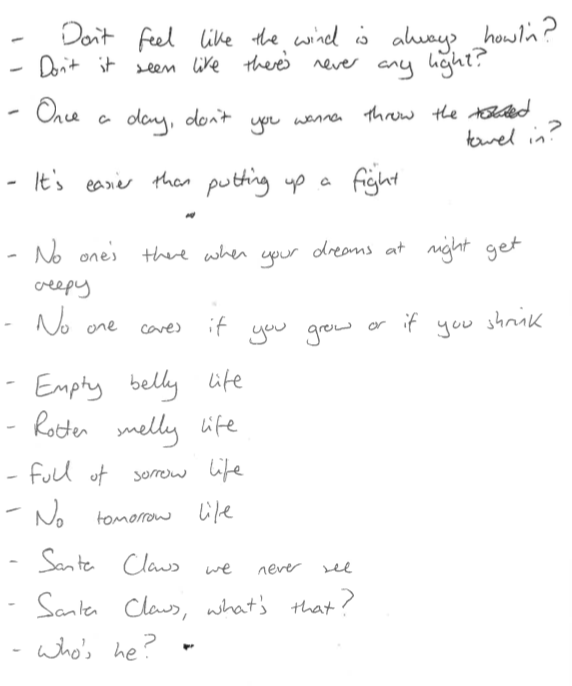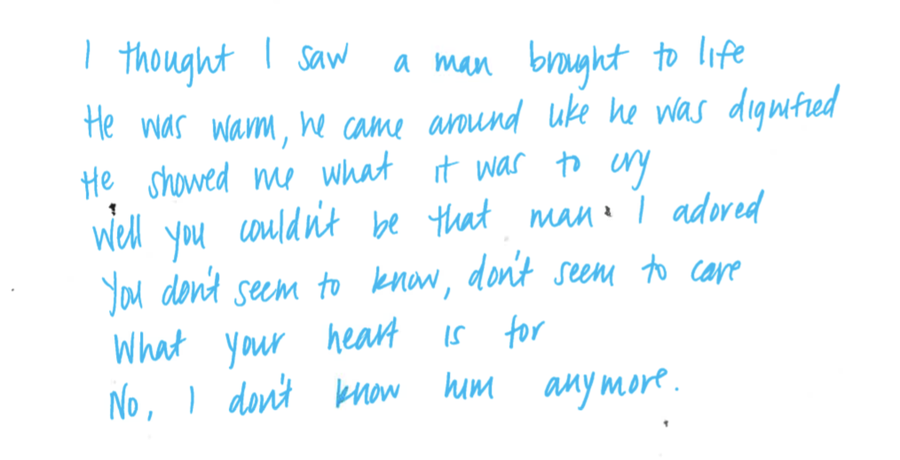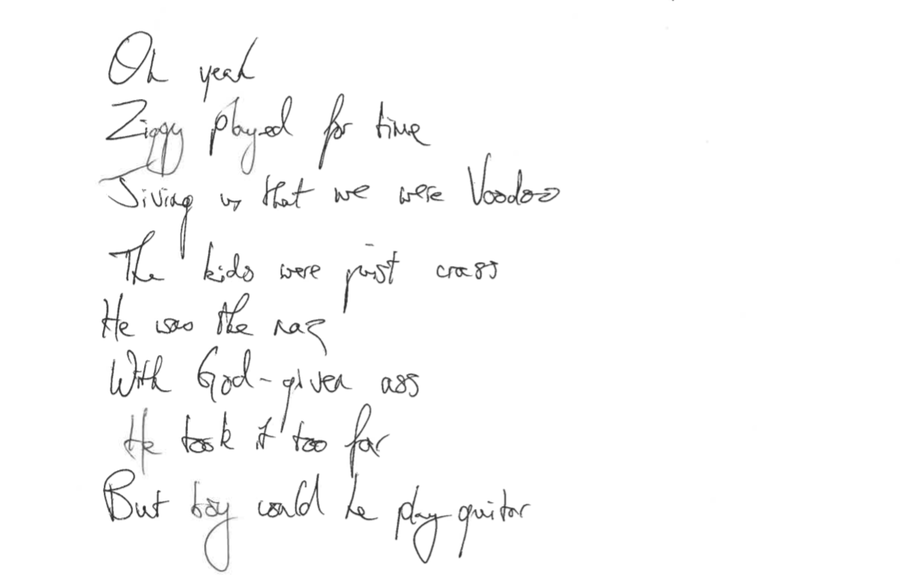Graphology, the study of handwriting, has been around since Socrates. So the fact that today, despite the rise of the typed word, it’s still used across everything from crime solving to politics to hiring, is a testament to its powers of analysis. But as graphologist Emma Bache tells us, learning the meaning behind the shapes you throw with your pen can be useful for self-knowledge as well.
“You can detect most major traits within a personality as well as more transient characteristics such as moods and emotions…. Every handwriting is as unique as a fingerprint.”
Emma is running a handwriting workshop at The Collective Old Oak this weekend and we can’t wait. Keen to learn more, we asked her a few questions, and she analysed handwriting excerpts from three of our team members. Warning: Personality plot spoilers ahead.
Tempe: How did you get into graphology?
Emma: I originally got into graphology because I was invited by a friend to attend a workshop in the subject back in 1987. The reason that I carried on with my studies and made it my career is my interest in psychology, and my need to uncover hidden elements within the psyche. I find people far more interesting than things, and in another life I would possibly have been a private detective!
Just how much can you tell about a person from their handwriting, and how accurate do you find it to be?
You can detect most major traits within a personality as well as more transient characteristics such as moods and emotions. I find it to be hugely accurate as every handwriting is as unique as a fingerprint. If there is a facet that I am unsure about, I would not mention it. However, the three things no graphologist can tell are gender, age or whether the writer is right or left handed.
As well as reflecting what people already know about themselves, can graphology serve to teach us something about the way we are and who we’re becoming?
Graphology does not just tell us what we already know about ourselves, but gives us an idea as to why we behave in a certain way. We may know that we have a temper but may not acknowledge why we display it in the way that we do. These revelations are important in business when it comes to recruiting and restructuring a company, as well as in helping the individual to make best use of their talents.
Different countries of the world have different copybook styles of handwriting, and this is indeed reflected in national characteristics.
Graphology can play an important role in assisting politicians and leaders to understand, and therefore interact with, other nations and leaders.
Handwriting is something we learn when we are children, and develop as we become young adults. Does it reflect the way we are at that specific time in life, or does it also paint a broader picture as we grow and evolve?
When I analyse handwriting I am assessing how the writer is at that moment in time. Writing changes as we progress through life due to both emotional and physical changes that occur. However the main characteristics often remain with us from a young age to death. I am not a fan or analysing young children and their handwriting as they have a need to construct their letters in order to be legible for school purposes and they are both developing their handwriting skills as well as finding their feet socially and emotionally.
You’ve been working in graphology since 1989. I imagine you’ve had some interesting clients and experiences. Any highlights you can share?
I really love my work and especially enjoy meeting the clients (most of my work is done without meeting the writer).
I once worked at a private party for Rupert Murdoch and had the opportunity to stand up in front of a microphone to tell the guests what I thought of his personality. I suspect not many people have had that opportunity!
It is always gratifying when I have positive feedback and an elderly member of the aristocracy rang me at home to tell me that my graphological session with the family had changed them all for the better and had left a lasting impact with them. It’s nice to hear that what I am doing is actually having a beneficial effect on others.
Most of my work of course is not with the famous or infamous. To help the student looking for career guidance, or to write a compatibility report for a couple, or to assist with finding the perfect employee for a small company is what makes my career as fascinating as it is.
What does a day in your life look like, in a couple of lines?
I eat breakfast whilst reading through and answering emails. I will spend up to four hours a day writing reports for individuals and companies. A one-on-one session with a client in the afternoon typically lasts about 1.5 hours. Just back home in time to prepare for a corporate evening event in which I am giving a talk about graphology and entertaining the guests. I arrive home at about 1am.
Handwriting mini analyses
We asked Emma to analyse some of our handwriting samples.
Writer 1

“This writer is intuitive but a little moody,” says Emma. “They understand others extremely well, but they can be somewhat reticent about giving out too much details with regard to their own thoughts and feelings.
They enjoy partaking in varied tasks and can get bored very easily. However, they are also on a practical level and well organised in day-to-day activities.
Their creativity means that they would rather delegate more mundane minutiae to others as they concentrate on the bigger picture.
The writer has a healthy ego and a good sense of pride.”
Writer 2

“Analytical and critical, this writer is intelligent and mentally straight forward. However, they can be stressed if they feel out of their comfort zone as they like to be in control of situations.
They are versatile and hard working, and enjoy getting stuck into a project without prevarication or distraction. There is an artistic sensibility to the personality in that they are likely to have a good sense of form and colour, but true creativity is hampered by their need to control their own actions. They can be stubborn.”
Writer 3

“This writer is very emotional and they are a natural worrier,” says Emma. “Others can find them quite a life force as they have extremely deep feelings and an accompanying temper at times. The truth is that they are in fact rather secretive and independent, but at the same time care a great deal about what others think of them.
They have a high sex drive and a physicality that can make them restless.
There is a lot of energy here, but also angst. They have the capability of working alone and they can take their work and interests seriously enough to be obsessional.”
Emma’s workshop, ‘What does your handwriting say about you’ is at 3pm this Sunday, 14th October at The Collective Old Oak. Members, head to the app for more info.
